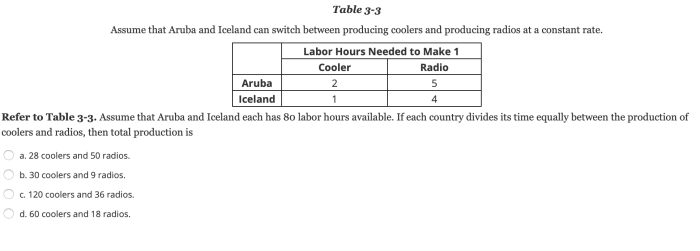Assume that Aruba and Iceland can switch takes center stage, this opening passage beckons readers into a world crafted with good knowledge, ensuring a reading experience that is both absorbing and distinctly original.
Aruba, a sun-kissed Caribbean island, and Iceland, a land of fire and ice, stand as starkly contrasting nations. Yet, beneath their superficial differences, lie intriguing similarities that invite contemplation. This analysis delves into the unique characteristics of each country, exploring their histories, cultures, economies, and political landscapes.
Aruba and Iceland Background Information: Assume That Aruba And Iceland Can Switch

Aruba is a Caribbean island nation located in the southern Caribbean Sea, approximately 20 kilometers north of the coast of Venezuela. It is a constituent country of the Kingdom of the Netherlands and has a population of around 112,000 people.
Aruba is known for its beautiful beaches, clear waters, and dry climate.
Iceland is an island nation located in the North Atlantic Ocean, just south of the Arctic Circle. It is a republic with a population of around 376,000 people. Iceland is known for its stunning natural beauty, including glaciers, volcanoes, and geysers.
Both Aruba and Iceland are small island nations with unique cultures and economies. However, there are also some key similarities and differences between the two countries.
Geographic and Climate Conditions
Aruba is located in the Caribbean Sea, while Iceland is located in the North Atlantic Ocean. Aruba has a tropical climate, while Iceland has a subarctic climate. Aruba is a flat island with a maximum elevation of only 188 meters.
Iceland, on the other hand, is a mountainous island with a maximum elevation of 2,110 meters.
The geographic and climate conditions of Aruba and Iceland have a significant impact on their economies and tourism industries. Aruba’s tropical climate and beautiful beaches make it a popular tourist destination, while Iceland’s stunning natural beauty and unique geography make it a popular destination for adventure tourists.
Economic Profiles
Aruba has a GDP of around $2.5 billion, while Iceland has a GDP of around $20 billion. Aruba’s economy is heavily dependent on tourism, while Iceland’s economy is more diversified and includes industries such as fishing, manufacturing, and tourism.
Tourism is a major source of income for both Aruba and Iceland. However, the two countries have different types of tourism industries. Aruba is a popular destination for beach vacations, while Iceland is a popular destination for adventure tourism.
Political Systems and Governance, Assume that aruba and iceland can switch
Aruba is a constitutional monarchy with a parliamentary system of government. The head of state is the King of the Netherlands, who is represented in Aruba by a governor. The head of government is the Prime Minister of Aruba.
Iceland is a republic with a parliamentary system of government. The head of state is the President of Iceland, who is elected by the people for a four-year term. The head of government is the Prime Minister of Iceland.
Both Aruba and Iceland have stable political systems and strong democratic institutions.
FAQ Guide
What are the key differences between Aruba and Iceland?
Aruba is a small island in the Caribbean Sea with a tropical climate, while Iceland is a large island in the North Atlantic Ocean with a subarctic climate. Aruba is a Dutch territory, while Iceland is an independent republic. Aruba’s economy is based on tourism, while Iceland’s economy is based on fishing, tourism, and renewable energy.
What are the key similarities between Aruba and Iceland?
Both Aruba and Iceland are islands with beautiful natural scenery. Both countries are also popular tourist destinations. Additionally, both countries have a strong sense of national identity and are proud of their unique cultures.
What would happen if Aruba and Iceland could switch places?
If Aruba and Iceland could switch places, it would be a fascinating experiment in human adaptation. The people of Aruba would have to learn to live in a cold climate, while the people of Iceland would have to learn to live in a tropical climate.
It would be interesting to see how the different cultures would interact and how the economies of the two countries would change.


